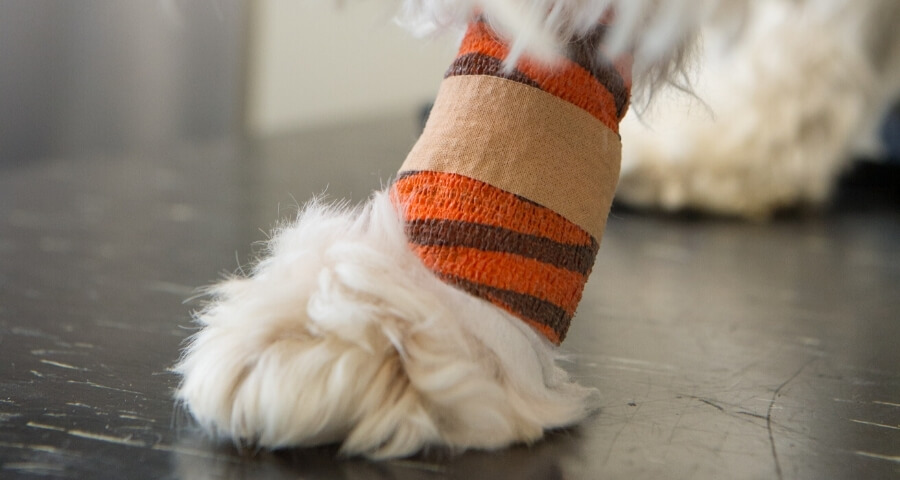Basic pet first aid
Ouch! Your pet has just hurt themselves – what should you do?
Eye injuries
If your pet has gotten something in their eye (e.g. grit, shampoo, plant material, etc), it’s best to try to flush their eye with cool running water as soon as possible. You may also use clean saline solution if you have this.
It’s best to phone us for immediate advice if:
Your pet had something sharp poke their eye
Your pet can’t open their eye properly
Your pet’s eye is bleeding, or leaking tears constantly
Wounds
If your pet has a shallow wound (like a graze), then it’s okay to treat this as you would for a graze on yourself. If there is any obvious dirt in the wound, rinse it with cool tap water or fresh saline solution.
Avoid the use of human skin disinfectants, as these can actually irritate the wound further, or cause unwellness if your pet licks them. If your pet is constantly trying to lick the wound, use an Elizabethan collar if you have one, or try gently applying a sterile gauze and bandage to protect the wound until you can visit us. Change the bandage daily and do not apply it too tight, otherwise this will cause further irritation. Remember, if you’re unsure, seek veterinary attention to assess the wound.
Bring your pet to us for immediate treatment if:
The wound is steadily dripping blood
The wound is a cat or dog bite
The wound is large or deep
The wound is showing signs of infection (discharge, redness)
Whilst awaiting veterinary treatment, deep or bleeding limb wounds can be wrapped temporarily with sterile bandage material, or if you have no bandages then you can even use a clean face-washer with cling film wrapped around it until you get to the vet clinic. Just make sure dressings aren’t too tight for you to be able to fit a finger underneath. For bleeding wounds that cannot be bandaged, apply steady pressure with a clean towel for 4-5 minutes, and limit your pet’s movement.
If you’re worried, give our team a call – we can advise you further on home care or recommend a veterinary visit.

